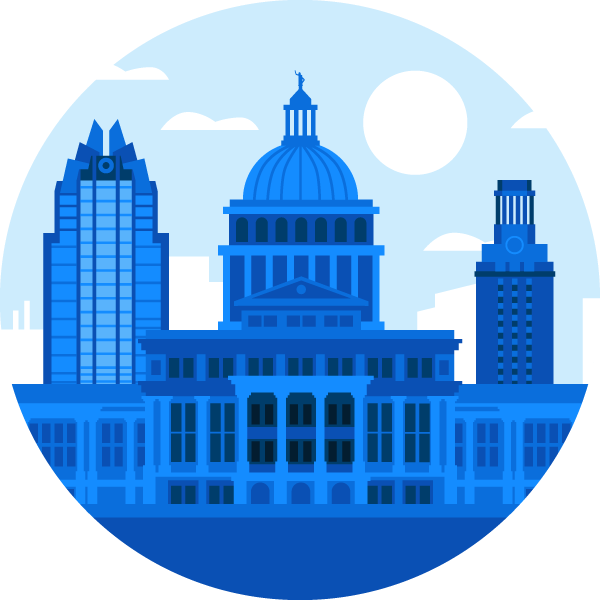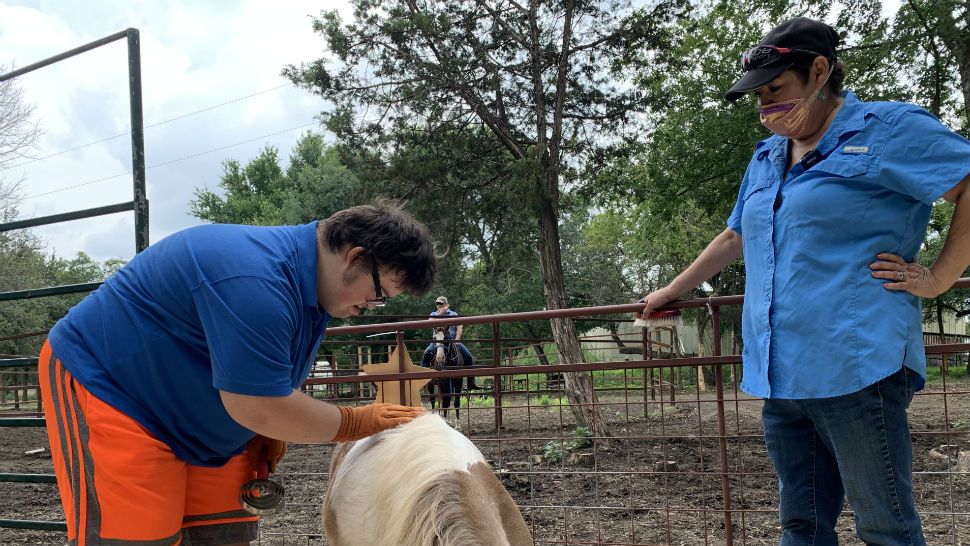AUSTIN, Texas — With shelter-in-place orders in effect, domestic violence is on the rise across the country.
What You Need To Know
- Four nonprofits distribute COVID-19 relief money
- One of those is the Asian Family Support Services of Austin
- Survivor tells her story
"This is almost creating a pressure cooker for everything that could possibly go wrong. Shelters have reduced capacity to prevent infection, and that makes a lot of sense, but also pair that with the increase in reports of domestic violence, and that creates sort of the perfect storm in some ways," said Zahra Shakur Jamal, Community Education and Outreach program manager with the Asian Family Support Services of Austin, also known as AFSSA.
AFSSA is a nonprofit that helps immigrants and refugees who are victims of domestic violence and human trafficking escape their abusers, and it's also one of four nonprofits that is distributing COVID-19 relief money from the City of Austin through the Relief in a State of Emergency Program.
"Domestic violence is a problem in all communities right now and that's no different for our communities. Part of the challenge is that because of the model minority myth, and because Asians and Asian Pacific Islander folks have the tendency to sort of lay low and kind of go under the radar a little bit. There is not a lot of awareness of the need for these services, so there aren't a lot of mainstream organizations that are fully aware of the scope of the need," said Jamal.
A woman who immigrated from Bangladesh to Austin more than 10 years ago says she is living proof of the organization’s work.
“I had thought that America is a freedom country, [but] in that house I don’t feel like a freedom," said domestic violence survivor and former AFSSA client, Ruksana (name changed for privacy concerns).
After moving to the U.S., Ruksana endured six years of verbal and physical abuse from her now ex-husband and in-laws.
“They are bullying me, they are cursing me, they are cursing my family, and sometimes they are beating me, too," said Ruksana.
A neighbor who overheard the abuse called the police, and they put Ruksana in contact with AFSSA.
“We actually were founded by a group of South Asian women that were volunteering at a local shelter. And they recognized that a lot of folks from our communities that were experiencing domestic violence and sexual violence, were not coming forward to seek help," said Jamal. "Domestic violence or sexual violence or any form of violence can can really damage the self-esteem of the person and it becomes really difficult for somebody to get, to ask for help. When you add to that in many languages that are spoken in across the communities that we serve there isn't accessible vocabulary for domestic violence, or certainly rape or rapist, that adds to sort of the additional barriers that survivors are experiencing in figuring out what's happening to them, and what they need to do to protect themselves."
Jamal says that part of the problem is the language barrier.
Describing how she felt when she began considering seeking help, Ruksana says: “I was really scared… I don’t know the English, I cannot explain what happened to me.”
However, AFSSA helps fill that gap by pairing survivors with advocates who are familiar with the language the survivor speaks, which supports their ability to help survivors through every step of the process of escaping abuse.
“We hope to and strive to be a culturally grounded, culturally responsive agency, and so our services will always be available in any language that the survivor is comfortable in speaking," said Jamal. "But cultural humility and cultural groundedness does not stop there. A lot of our advocates are bi-cultural, tri-cultural, and really are connected in the communities that we work with, and so that makes for an experience that the client is having that is comfortable. It takes away a lot of explaining that the clients feel that they have to do when they're going to other agencies that don't share that experience."
That cultural bond can make a world of a difference when a survivor takes the step of seeking out support.
"We have clients that are deeply uncomfortable with reaching out for help, and even for many in our communities that have been here for decades, there has been a level of isolation that they've experienced and that means that they're not very familiar with the resources that are available and having many coming from countries where there aren't safety nets, that's a very foreign concept," said Jamal.
With AFSSA’s help, Ruksana was able to leave her abusive household with her young daughter.
“They helped me with my divorce, they helped me with my apartment, they helped me with like gift cards, like a lot of things. And now I really appreciate for that, that I’m happy and I’m now raising my daughter, with me and my daughter, both of them are happy. Happy life we are living now," said Ruksana.
Advocates with AFSSA help survivors with all of their needs, beginning with immediate safety concerns, and then moving on to practical skills like helping survivors learn and navigate the public transportation system or learn how to drive, procure legal representation for divorce proceedings, sign up for ESL classes, navigate through other social services, enter therapeutic counseling programs, and more.
"Really the advocate is with the client through that process, and really making sure that they can achieve financial economic independence, which would allow them to achieve freedom from the abuser and the abuse," said Jamal.
Ruksana says her advocate not only helped her through the steps of getting a divorce and a job, but she helped Ruksana start a new life with her now 10-year-old daughter.
"Now I'm a very strong person, I'm a hard-working momma," said Ruksana. “All I can say is thank you so much from the AFSSA. They gave me my good life, and forever I always thank the AFSSA.”








